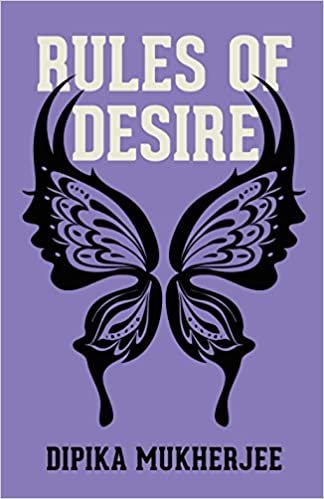Book Review: Rules of Desire
Rules of Desire. Dipika Mukherjee. Fixi Novo Press, December 31, 2015, Trade Paperback and Kindle, 254 pages.
Reviewed by Elizabeth Melvin.
Dipika Mukherjee is an accomplished author with a list of well-deserved accolades including the 2014 Gayatri GaMarsh Memorial Award for Literary Excellence. Her newest work, a collection of short stories titled Rules of Desire, has already heralded more praise. Mukherjee has authored two novels and poetry collections, with Rules of Desire being her first collection of short stories. The awards are well deserved based on her fluid and beautiful writing. She is able to absorb the reader in a given reality with a confident intimacy that gives as much reward to the reader as the prose itself has received from critics. Awards aside, this is a very engaging collection of beautifully created stories. It is immediately engrossing. I dare you to read this book without becoming emotional. The cover might suggest that desire is solely romantic.
The content is gripping and moves so much beyond our simple understanding of desire as Mukherjee plunges beneath the surface and explores the murky frightening depths like a shark that does not rest from its search to fulfill instinct.
The collection opens with the deeply unsettling “Doppelganger,” (featured in Best Malaysian Short Stories 2015) in which readers are immediately upended by the experience of an author whose identity has been stolen. Enjoyable and tragic, it sets the tone well for an (American) English-speaking audience who may not be familiar with Malaysia or conspiracy theories in that region. There is an immediate humanity to the character’s outrage, and we feel connected to the story immediately. This continues through the many dynamic tales in the book. There is a realistic subtlety to the natural way in which all of her characters involve their desires.
Mukherjee’s stories run the gamut of the many focal points of desire, including idealization—how our wishes may be pure fantasy and how some desires are unfulfilled because we have invented a standard for which no satisfaction exists. In some stories, such as “Jazz Bar,” we watch the tragedy of unfulfilled and denied desire. “Casting Pearls” takes us back to 1905. This tale is wrought with desire, both personal and cultural, with people caught in the collision of conflicting desires. In other stories, such as “Circle of Life” and “Desire, Spring, Poetry,” the reader is immersed in the backlash of served desires where regret or euphoria live. Another interesting point in the author’s work is that the desires of the characters, no matter how dramatic, are as natural as can be. We believe that these characters truly regret, love, want, manipulate, and create their reality so that there is no room in their hearts for doubt. These strange constructs shape the desires and the wants of each character, as they do for us in life.
One of my favorite stories is “The Wife,” in which a woman who desires nothing is fully satisfied with her life and must deal with the consequences of her husband’s actions to fulfill his own desire. His insatiable habits created her desire to avoid the consequences of his actions. Her struggle and pragmatism are both alluring and detestable. The desire of the wife is seemingly so simple, but her true desire is buried underneath and, as it reveals itself, we are compelled to pity and shame her even as her community does the same. Yet, we are also forced to acknowledge how the impact of another’s actions can remove control over our own life, and we, above all, feel the desire to be protected from such a fate. This story alone is worth the cost of the book.
The publisher of this collection, the Fixi Novo imprint of Buku Fixi, includes a manifesto regarding the language of the book. They do not use italics for non-American/non-English terms because “italics are a form of apology.” For Mukherjee’s work, this becomes almost a nonissue. Even if a reader had never heard of Malaysia, italics are not needed because context allows the reader to follow along with the humanity and strength of the story. From start to finish, Rules of Desire is an engrossing experience and a thoroughly enthralling read.

